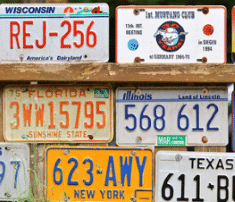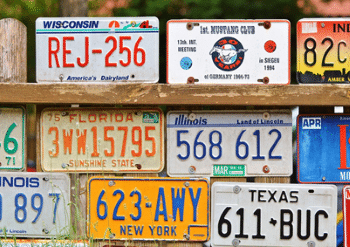Important Facts About Vehicle Registration That You Need To Know

The government has made it its job to supervise a lot of things, and of course, among others, what we drive and how we do it. This isn’t necessarily a bad thing as it means we will have a certain standard for whatever is being put onto the streets, as well as so and so competent drivers. But until we get to that, we have to crawl through the nightmare of official papers, clerics, and waiting lines at the DMV.
So instead of being rejected when you finally reach the official who is supposed to give you your license plate – you should prepare beforehand by going through all that is needed for the procedure, collecting the paperwork, money, etc, or alternatively, finding a quicker way of getting things done. Either way, there is still a list of things that need to be covered regardless.
Are you Registering a New Vehicle?
Let’s say you are a resident and are about to register your first car. Depending on how you got the vehicle (Bought from a licensed dealer? Received as a gift? Bought from an individual?) you will have different deadlines (from 10 to 20 days) to when you are supposed to contact the department of motor vehicles to get them to issue your papers.
If the car is bought from a licensed car dealer they will probably also give you a temporary registration and maybe even license plates, though you will have to replace them immediately once you receive your new ones from the state. The DMV will require a list of the car’s history and characteristics, such as mileage, smog certificate, etc, as well as the fees for its appropriate value.
Registration Renewal
Renewing your registration is pretty straightforward, though it still does require waiting in line or sending some mail here and there. To avoid this hassle some companies, like Quick Auto Tags, have devoted their entire business strategy to make the whole process quicker and simpler, by being the middleman and having a way to solve it painlessly. Every vehicle must be re-registered every year, and you will be reminded by it by the DMV itself via mail.
You will need to supply:
- Vehicle information
- The expiration date of the license plates
- Registration fees
- Any late fees or unpaid parking tickets
If you work a busy schedule, this paperwork may be too much to bother with even for a few days, so that is why the aforementioned companies come in handy, but with a planned-out period, you can take care of everything yourself.
How Much Does It Cost?
In California, there are two fees that are required for all vehicles, regardless of age or state of vehicle: a registration fee of $60 and the California Highway Patrol fee of $26.
If the car is bought from a private individual you will have to pay these fees directly to the DMV while registering, but if the transaction is going through a licensed dealer they will take care of the fees also.
The one fee that varies the most and is generally harder to estimate is the Transportation Improvement Fee, which is based on the vehicle’s value:
- $0 – $4999 the fee is $25
- $5000 – $24999 the fee is $50
- $25000 – $34999 the fee is $100
- $35000 – $59999 the fee is $150
- $6000 and more the fee is $175
Late registration fees will depend on how late they are, from less than a year to more than two years. Parking tickets will also have to be paid, though that is beyond the scope of this article as it depends on where and how long the car has been parked.
Backchecking a Used Vehicle
If buying or being gifted with a used vehicle take care to check its history to make sure you are not getting a stolen or otherwise illegal car. For this reason, in the US we have the so-called VIN – Vehicle Identification Number that allows us to follow a car’s history with it – from accidents that it took a part into it having a mechanical fault so that it was written off earlier.
The 17 digits VIN can usually be seen on the windshield or marked into the top of the engine. Before registering, or even buying, any car, make sure to check the vehicle’s history to avoid problems later on.
Being safe on the road and enjoying the ride is more than just having a functional airbag and fast wheels – it also means being part of a system that makes sure everyone else is safe too. So sure, it means waiting in a few lines during the year, or waiting for a letter response, but at the end of the day, you know that everything with your car is fine and that even the police won’t be able to find any fault if they stop you.

